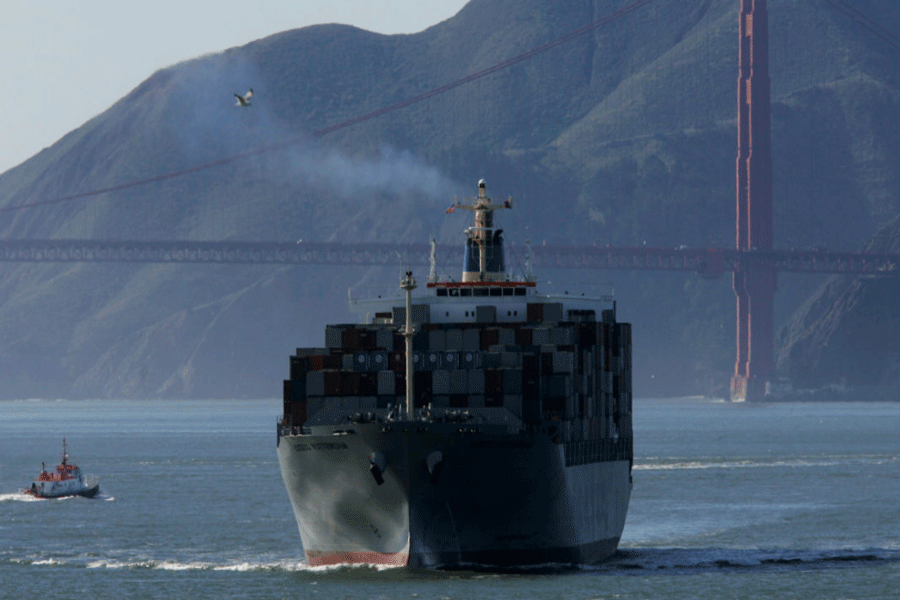Shipping emissions could be halved without negatively impacting global trade
London, 27 June 2023 – According to The Guardian, New research has shown that greenhouse gas emissions from the shipping industry could be reduced by half by 2030 without negatively impacting global trade. These findings come as nations convene in the IMO Headquarters, in London for discussions on implementing a potential carbon tax on ships to address climate change.
Currently, maritime transportation contributes approximately 3% of global greenhouse gas emissions, and ships heavily rely on cheap and polluting diesel oil with limited alternatives. The shipping sector has been slow to adopt emissions-cutting technologies, prompting an increasing number of countries to advocate for a tax on shipping. Such a tax would incentivize shipowners to invest in emissions reduction and support countries affected by climate disasters.
Developing countries are demanding the rich economies to finance for the irrecoverable losses they are suffering from climate change. In a paper presented at the general assembly of the UN, affected nations demand “climate-related and justice-based” global tax mainly from airlines and the shipping industry. Funding is set to be difficult to foster due to soaring fuel prices, rising cost of living and food around the world. Nonetheless,, rich countries have agreed, during the last COP26 UN climate summit in Glasgow, that there should be a framework for loss and damage despite not being certain of how it will be funded and who will contribute.
The International Maritime Organization (IMO), the United Nations division responsible for global shipping governance, has gathered in London for a two-week session to discuss decarbonization efforts and the feasibility of implementing a new levy of up to $100 (£78) per tonne of carbon emitted by ships.
Last week, nearly 40 world leaders and heads of global financial institutions discussed a shipping levy during a summit in Paris. The event, which aimed to establish a new global financing pact, featured arguments in favor of a tax from both developed and developing countries. The revenue generated from the tax would contribute to a “loss and damage” fund, assisting countries grappling with the devastating effects of extreme weather events.
Estimates from the World Bank suggest that a carbon tax on shipping could generate $50 billion to $60 billion annually. Japan, the world’s second-largest ship-owning nation, has proposed a carbon tax of $56 per tonne of carbon starting in 2025.
However, the United States faces challenges, as President Joe Biden may encounter resistance from a Republican-controlled Congress regarding any proposed plans. Treasury Secretary Janet Yellen cautiously welcomed the idea at the Paris conference, while John Kerry personally expressed openness to such concepts, although it does not represent the official stance of the administration.
Yellen stated, “We’re very focused on the need to raise substantial resources to address climate change and poverty reduction and other global challenges. So we’re very open to innovative approaches. I think it is a very constructive suggestion and would agree with President Macron’s description of the logic of why it would be appropriate, and it’s something that the US will look at.”
Kerry added, “I support some kind of revenue raising on a broad basis, but this is not administration policy. I personally have supported pricing carbon, but I’m not advocating a tax or a fee or anything at this point. Certainly, the administration is not, but we have to find a way to find more concessionary funding.”
Eamon Ryan, Ireland’s environment minister and the European Union’s lead negotiator on loss and damage, emphasized the delicate nature of the IMO discussions, stating, “It’s 50:50; it’s not certain that it will be agreed.” Ryan urged all 175 member countries of the IMO to take initial steps toward implementing the proposed tax, stating, “We need to show real commitment on addressing the climate crisis, and these mechanisms would give the developing world confidence that it’s no longer just time for talking, it’s time to act.”
Ryan also expressed his desire to include aviation in the tax for the loss and damage fund, noting, “The great advantage there is on equity – it is the wealthier people who fly. One euro on a plane ticket would give us €5bn a year. That’s not a small contribution to the effort we need to make.”
As countries prepare for the IMO meetings in London, taking place from 26 June to 7 July, consultancy firm CE Delft published research indicating that CO2 emissions from shipping could be reduced
Source: The Guardian

